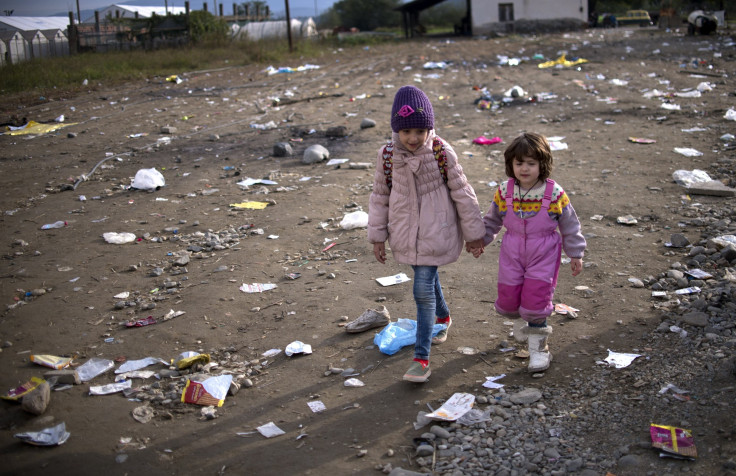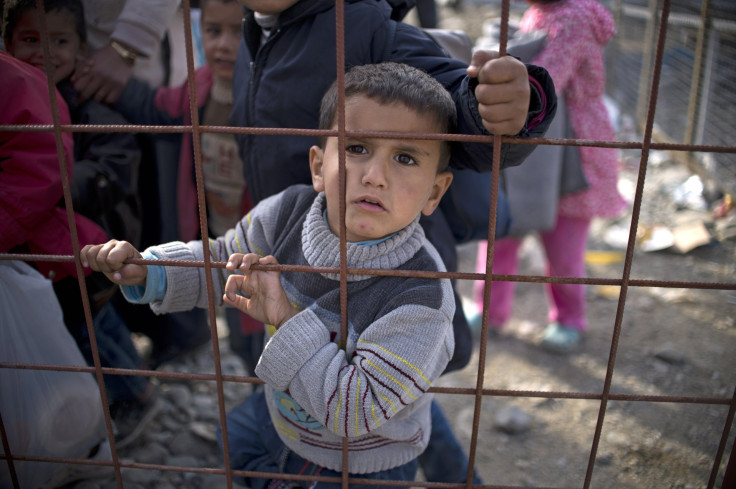Refugee Crisis: A Stateless Child Is Born Every 10 Minutes, UN Agency Says

At least 70,000 stateless children are born every year -- or about one every 10 minutes -- the United Nations said, in a report released Tuesday. In a statement accompanying the report, the U.N. Refugee Agency (Unhcr) called for urgent action before problems faced by stateless children and youth became “set in stone.”
“My entire life is a question mark,” Vikash, a stateless 23-year-old in Malaysia, who was interviewed by the agency, said. He is just one of over 250 people interviewed -- including children, youth and their parents or guardians -- in Ivory Coast, Dominican Republic, Georgia, Italy, Jordan, Malaysia and Thailand last July and August for the report titled “I am Here, I Belong.”
Most of those interviewed by the U.N. in these seven countries described themselves as “invisible,” “alien,” “living in a shadow,” “like a street dog” and “worthless” -- underscoring the psychological toll of being stateless and of being denied the rights most citizens enjoy.
“In the short time that children get to be children, statelessness can set in stone grave problems that will haunt them throughout their childhoods and sentence them to a life of discrimination, frustration and despair,” the U.N. High Commissioner for Refugees Antonio Guterres said, in the statement. “None of our children should be stateless. All children should belong.”

The report -- which the U.N. said is the first geographically diverse survey of the views of stateless children -- also highlighted several “insurmountable barriers” stemming from not being recognized as a national of any country.
For instance, in Syria -- which is currently reeling under a violent, multi-pronged civil war that has left over 300,000 people dead -- children can only become citizens through their fathers. But, the conflict has left nearly 25 percent of Syrian refugee households without fathers to help verify nationality -- a major issue for many of the nearly four million Syrian refugees who still hope to return home after the war ends.
The report also noted that in 30 countries, national documentation is required to access basic medical treatment, while in 20 countries stateless children cannot even be vaccinated. In many cases, schools deny entry to or seek exorbitant fees from refugee children, making education unaffordable.
“Stateless young people are often denied the opportunity to receive school qualifications, go to university and find a decent job. They face discrimination and harassment by authorities and are more vulnerable to exploitation,” the U.N. agency said, in the statement. “Their lack of nationality often sentences them and their families and communities to remain impoverished and marginalized for generations.”
In order to meet its stated goal of eliminating statelessness by 2024, the U.N. agency demanded that countries scrap discriminatory laws that forbid mothers from passing on citizenship, and urged states to provide citizenship to refugee children, if they would otherwise be stateless.
The report comes at a time when the world is struggling to deal with the worst refugee crisis since World War II. So far, in addition to the millions of refugees living in makeshift shelters in Turkey, Lebanon and Jordan, over 700,000 people -- mostly those fleeing war and poverty in the Middle East and sub-Saharan Africa -- have sought refuge in Europe.
© Copyright IBTimes 2024. All rights reserved.






















